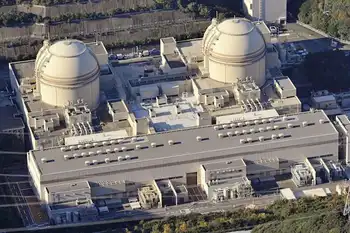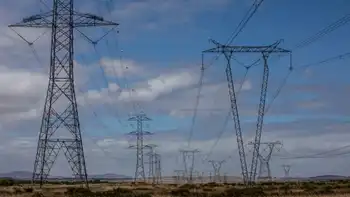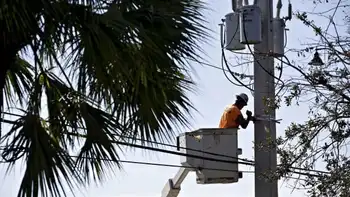Unpaid dues lead Russia to pull help from nuke facility
By Associated Press
High Voltage Maintenance Training Online
Our customized live online or in‑person group training can be delivered to your staff at your location.

- Live Online
- 12 hours Instructor-led
- Group Training Available
A large number of Russian technicians, engineers and other specialists have returned to Moscow, at about the same time senior Russian and Iranian officials tried unsuccessfully to resolve financial differences over the Bushehr nuclear reactor, a European diplomat and U.S. official said. They spoke on the condition of anonymity because their information was confidential.
"A good number of them have left recently," the U.S. official said about the approximately 2,000 Russian workers on the site of the nearly completed reactor outside the southern city of Bushehr. The European diplomat, who is accredited to the Vienna-based International Atomic Energy Agency, said a large number had left as recently as last week.
Sergei Novikov, a spokesman for Rosatom, Russia's Federal Nuclear Power Agency, confirmed that the number of Russian workers at the Bushehr plant had dwindled because of what he said were Iranian payment delays. He would not say how many had left.
In a commentary, Iranian state television criticized Russia for what it described as a policy of procrastination in constructing Bushehr.
"Double-standard stances by Russian officials regarding Iran's nuclear issue shows that Russians are not a reliable partner in the field of nuclear cooperation," the commentary said.
The nuclear reactor outside the southern city of Bushehr is not part of Iran's dispute with the U.N. Security Council and the reactor itself has no potential military use.
The Russian departures are formally linked to a financial dispute with Iran but have a strong political component, linked to international efforts to persuade the Islamic republic to freeze activities linked to uranium enrichment, which can produce both nuclear fuel and the fissile material for nuclear warheads.
Although the reactor is 95 percent completed, Russia announced this month that further work would be delayed because Iran had failed to make monthly payments since January. It said the delay could cause "irreversible" damage to the project.
Because of the delay, Russia also indefinitely postponed delivery of enriched uranium fuel it had promised to provide Iran by this month. Russia's ambassador to the United Nations, Vitaly Churkin denied, however, that Russia had given Iran an ultimatum to suspend uranium enrichment or forgo the nuclear fuel and said the Bushehr project was entirely separate.
"We are discussing whatever economic circumstances there might be for the Iranian government, but we are not linking it to our discussions here in New York on Security Council resolutions and concerns associated with the Iranian nuclear program," Mr. Churkin told reporters at U.N. headquarters in New York.











